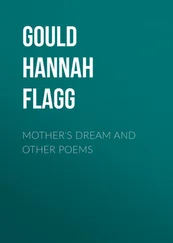With no warning, he pulls out and walks into the bathroom. I am too tired to speak or move, which is not the worst postcoital feeling I’ve ever had.
Minutes or hours later, large hands pull me into a sitting position. “I will come to get you at noon, okay?” Claude says. “My driver will take us to lunch at a resort in the mountains. Bring your swimming suit. You will love it.” I nod. He pats my foot and stands up.
After he leaves, I get out of bed and draw the lock across the door. I glance at my stuff, scattered on the floor around the room: a bottle of Rite Aid sunscreen, a faded blue bikini hanging from the doorknob, hiking sandals caked in dirt. “I’m glad Claude didn’t beat me to death,” I tell my things. I wish they could laugh.
—
I always made sure I had at least two blankets on my bed when I was a child, so they could keep each other company while I was at school. If I realized that one hand towel in the bathroom was getting used more than the other because it was closer to the sink, I switched the towels to give them equal affection. I broke down sobbing at my fifth birthday party when my mom suggested my friends and I take a plastic baseball bat to the piñata she had stuffed with my favorite candy. My care for objects was rewarded. Pillows, towels, markers, socks comforted me, offering themselves up with infinite friendliness. Then I entered junior high and learned that my behavior was acceptable only as a literary technique. But there was nothing poetic about the consciousness I attributed to things. I was possibly psychotic. This was one of many indications that it would not be wise for me to speak my true thoughts aloud.
At some point during one of my meaningless sexual encounters in Paris or during the barhopping years afterward or at several points during several such encounters, I had the thought that if I had been able to maintain that easy mutual love for things, I would have been always filled with love. People-oriented attachment and desire would not have been able to control me. Even if there were some truth to this thinking, the truth could not shift anything in me because, at the moment in which I was thinking this way, I was only exploiting the thought to feel something other than the reality of two bored people trying to feel a tiny bit good. It was a comforting distraction to conceptualize the sex as existentially sad, and my desire for it as existentially pathetic, because I could not then bear what I now know the sex truly was: banal, affectless, rien du tout .
—
“Protect this vow, even at the risk of your life.”
I am lying at the coincidence of two infinitudes — black air above, black water below. I had to swim far out, past the lines where the huge waves break, to be able to float on my back. I take refuge in the Buddha, I take refuge in his teachings, I take refuge in the people who abide them. That is the vow the Tibetan saying asks me to protect with my life. The water is wide awake and warm. I am terrified of sharks and sea snakes, one of which crawled out of the water and hissed at a group of drunken tourists the other day. I take refuge in the Bu— Stop.
I rise and fall along the crest of waves about to break. One sucks me under, tumbles me, releases me. There is no hope of refuge, no chance of being saved.
This man saved me. This job saved me. This exercise routine saved me. This religion saved me. This house saved me. This child saved me. This book saved me. This vitamin saved me. This parakeet saved me. This country saved me. Enough.
It takes a long time to swim back to shore. Afraid, okay, afraid, okay.
Afraid? Okay.
My English teacher in high school used to tell us that suicide was never an option in fiction. So this is what he meant. Of course people kill themselves in novels. But first the plot must be entrenched in such an eensy-weensy, immovable, rock-hard crevice that suicide becomes the only inevitability. In real life, suicide is always just one of infinite options, as avid and useless as any other fantasy.
KANDY
Loudspeakers crackle to life before blasting recorded pirith. The smell of the ocean is spicy and proud, not yet overpowered by frying rotis and burning trash. The bus stop is in front of a fancy hotel enclosed by a tall brick wall, which I lean against to relieve the weight of my pack. I don’t have to wait long before the bus barrels toward me, the loud complaints of its engine stirring up a gust of butterflies from a patch of grass on the other side of the road. Their bright, motile mass disappears into a palmyra grove, and I climb up the back steps of the bus, shouting “Kandy? Kandy?” to no one in particular.
An elderly man nods. “Kandy, yes. Long trip.”
I push through thickets of flesh in search of a place to stow my bag. The bus is packed with children in white school uniforms, businessmen in suits, businesswomen in saris. I tighten my abdomen and widen my stance to keep from falling when my sweaty hand loses its grip on the seat back.
Relief. We’re all just a person on a bus.
When I called 911 soon after Brian and I broke up, I knew, the instant the police filed in — guns drawn, backs to the wall — that there was no intruder. It was just me in a towel and two police officers whose jaws were set against the terror of being surprised by an armed lunatic. After they left, I walked over to the antique mirror Brian and I had carried home from a flea market one late-summer day, fallen leaves cartwheeling at our feet as the sun turned our noses pink. It was the only piece of furniture I’d taken when I moved out of his apartment. I sat down cross-legged in front of the mirror and met my own eyes. For the first time, I was glad Brian was gone. He would have been horrified that I’d mistakenly called the police, would have made me promise not to mention the incident to his parents, so ashamed he often was of my odd transgressions against decorum.
But this is also what drew him to me. He loved to watch me devour ice cream or tear up at the first threat of sadness in a movie. “You’re so susceptible,” he said once. “To everything.” And he laughed in a way that relieved me of the obligation to respond.
That first morning in our newly shared apartment: drinking mimosas, singing along to Neil Young, making pancakes filled with strawberries. We were so hopeful. He insisted we not get dressed. I sat on his lap and ate pancakes with my hands. At first, I kept my feet on the ground to take some of my weight off his lap. But as we both kept eating and drinking, I forgot to hold myself up and I let his thighs support me. An overly explicit metaphor. It was always like that with him, crystal clear, no surprises — like even our best times were part of a script that had been written long before we met. The bus hits a pothole and I’m jostled into an older woman. I almost grab her hand. Brian’s arm around my waist as we walked down an icy sidewalk: This is what I imagined love was, when I was a child. But they were only moments. We did not share the world that surrounded them.
At the other end of the bus, a pimply middle-aged man is waving at me and pointing to the empty seat in front of him. “Ne, ne,” I say. But the people in the aisle all stare at me while he gestures, so I make my way to the front. Best just to accept the kindness. The driver hands me a plantain. “Sthoo-thiy,” I say. Thank you, Brian, I think. For making me leave. The driver beams at the road before him. It’s not so difficult, really, to share moments of love with others.
As we near downtown Kandy, I hop off the bus at a storefront advertising international calls. A skinny boy in a Yankees shirt leads me to a curtained phone booth in the back. I start dialing before he pulls the curtain closed. The space between each muted ring is too long. On the other side of the curtain, the boy shifts in his squeaky chair. My chin curls toward my chest. No one home. Click. A man clears his throat.
Читать дальше












